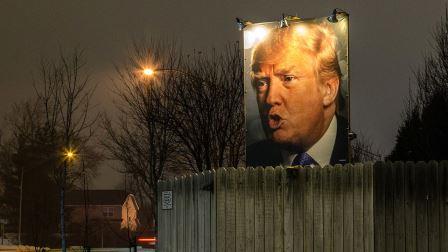Is There A Business Case To Be Made For Political Endorsements?
Earlier this month Home Depot founder Bernie Marcus took to the blog Real Clear Politics to explain why he’s voting for Donald Trump. The 800-word screed went on to talk about his experience as an entrepreneur, which led him to support the GOP. All the while, he cited his company’s success.
He writes:
But I draw even more from lessons learned when we founded the Home Depot in 1978 rather than from the contentious GOP primary of 2016. I genuinely believe that if we started the Home Depot today, we would fail because of the hurdles government, especially the current administration, places in front of small business owners.
This led some to believe that the company had issued this statement, which, as Snopes pointed out, caused some people to say they were going to boycott Home Depot. The company’s current leadership—which does not include Marcus—has been spending the last few weeks assuring people that the founder’s comments do not reflect the company’s, and that the Home Depot does not take political stands. We reached out to Home Depot about its stance versus Marcus’s stance, but a spokesperson declined to comment.
All the same, every once in a while a business does enter the political arena, and it leads me to one question: Why? Is there some business secret for entering a fissured and fractured political fray?
Take Chick-Fil-A, for instance, which publicly supported anti-LGBT legislation in 2012. There was an instant PR backlash, which some thought could hurt the company. The huge public outcry led the company’s CEO to step back on some of his comments, and even show regret that he made his company “a symbol in the marriage debate.”
Similarly, Target recently took a quasi-political stand on the issue of gender neutral bathrooms, bolstering its support of LGBT legislations, which led to loud conservative dissenting voices and threats of boycotts. The huge public outcry led the company’s CEO to step back on some of his comments, and even show regret that he made his company “a symbol in the marriage debate. Despite the media coverage, Target’s business doesn’t seem to have been affected. Target did not respond to a request to comment on the issue.
The question is: Why would a business make a move that could ultimately alienate customers in the first place? According to Larry Chiagouris, a professor of marketing at Pace University, the answer is that most businesses don’t. “Most of the time you do not see endorsements on a national level,” he says. “No one wants to irritate potential customers.”
Things change, however, when you bring it to a more local level. That is, if a business is in geography where the demographic leans one way, it likely won’t hurt business to show that you agree with those around you. For example, if you’re a small business in a very progressive area, says Chiagouris, “you can feel comfortable endorsing a liberal candidate.”
That helps explain Chick-Fil-A’s move. The restaurant chain hails from Georgia and is considered by many to be a Southern staple. Though it has locations in more liberal locales like New York, its leadership likely thinks its core demographic are those in the heartland with more conservative views. And, it’s true, despite a rabid call for boycotts, Chick-Fil-A did not see a fall in sales during the uproar. Still, the company did realize it may have overstepped its bounds and dialed back some of its anti-LGBT rhetoric.
When asked to comment on the interplay of business and politics, Chick-Fil-A gave Fast Company the following statement: “There are 80,000 people in 43 states who represent the brand. While the dimensions of those employees represent many facets of humanity, what they all have in common is a heart for service,” a spokesperson wrote to us in an email. They went on to describe their latest business launches; “Launching an app that excites customers is a business calculus. Commenting on politics is not.” All the same, ThinkProgress reports that the company still makes charitable donations to religious organizations that vehemently disagree with homosexuality.
Businesses will also take stands when there’s overwhelming public agreement. This helps explain Target’s move, says Chiagouris, who believes that “the dominant public opinion is favorable” to LGBT equality. Though there are loud voices dissenting unisex bathrooms, the quiet public opinion is in favor transgender-friendly spaces.
The big take-home is that businesses aren’t going to say anything that could possibly hurt them down the line. And if they do, it’s because they believe their core demographic agrees with what they do. Thus, it’s unlikely that a national brand is going to full-on endorse a candidate for president, but we may see smaller regional companies do just that.
Perhaps more important is the fact that even if people are angry, they still think with their pocketbooks. Chiagouris and his colleagues crunched the numbers of business trends and sales numbers and found just that. “If Target has a sale, by golly [people] are going to go there,” he says, citing his own research. Which is to say that cheap prices and convenience more often than not trump political conviction.
So, though we may be scratching our heads at why Bernie Marcus would do what he did. It’s important to remember that he’s a rich man with very little to lose. And it’s highly unlikely that an actual business would follow his path.
Fast Company , Read Full Story
(20)


